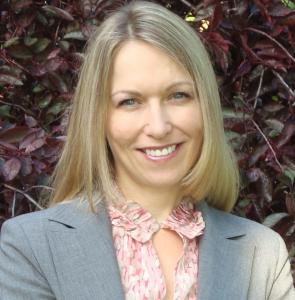 |
Sherri CoxPosition/Title: Ph.D. Student, Medical Director, National Wildlife Centre email: coxs@uoguelph.ca Phone: Office:
|
Education and Board Certification
1.DVM (OVC, 2009)
2.MBA (University of Guelph, 2009)
3. Diplomate, ABVP (Avian Practice), 2020
Work Experience
Medical Director, Wildlife Veterinarian, National Wildlife Centre (2014 - present)
· Provide medical assessment, treatment, surgery, and care for sick, injured and orphaned wildlife in Canada
· Supervise four veterinary interns in Alberta, Manitoba, Ontario, Nova Scotia
· Provide training to wildlife rehabilitators across Canada
Adjunct Professor, College of Biological Sciences, University of Guelph (2017 – present)
· Instructor for BIOL*3670: Introduction to Wildlife Rehabilitation
· Instructor for BIOL*3680: Wildlife Rehabilitation: Caring for Sick, Injured, and Orphaned Wildlife
Executive Director, Research Innovation Office, University of Guelph (2013 – 2019)
· Provide administrative oversight to the University of Guelph’s Research Innovation portfolio
Advisor: Dr. Andy Robinson
About Me
Wildlife Rescue: A Cry in the Wild Article: https://www.inthehills.ca/2018/03/wildlife-rescue/
Relocating polar bears: A first in Ontario: https://www.nationalwildlifecentre.ca/polar-bear-relocation/
As a wildlife veterinarian, I am passionate about helping to improve the health and welfare of wild animals and disseminating new information about some unique cases that I see. From moose to mice and turtles to terns, I treat all indigenous wildlife. I seek to help connect students, the public, wildlife rehabilitators, and scientists together to improve the lives of these wild animals through a One Health concept.
Academic
Currently, I am a Ph.D. student working with Dr. Andy Robinson and Dr. Esther Finegan. I completed both my DVM and MBA degrees at the University of Guelph.
PhD Research: My research is rooted in wildlife rehabilitation. Specifically, I am interested to understand why animals are brought to wildlife rehabilitation centres across Canada. I have collected more than 20,000 medical records and have analyzed these data to better understand the reasons for which these animals. Additionally, after treating many swans with lead toxicosis, I am researching the extent of lead toxicosis in many (apparently) healthy Trumpeter Swans. Collaborating with the Trumpeter Swan Restoration of Ontario, we sampled close to 100 swans in the wild to better understand the current health and lead burden in these animals that were once extirpated in Ontario. The results of the research could have broad implications in terms of environmental health and just how pervasive lead remains in our water systems, as well as the extent of subclinical lead toxicosis in Trumpeter Swans in Ontario.

